It can be a nerve-inducing experience. A bright-eyed high school senior stands in front of you, asking for THE letter. This is an important letter that could change their future: the college recommendation letter. High school teachers are no stranger to being asked for these letters from their students as college application dates approach. But, if you’re unfamiliar with these recommendation letters, it is important to understand the process before embarking on your journey to write one.
Free College Recommendation Letter Templates
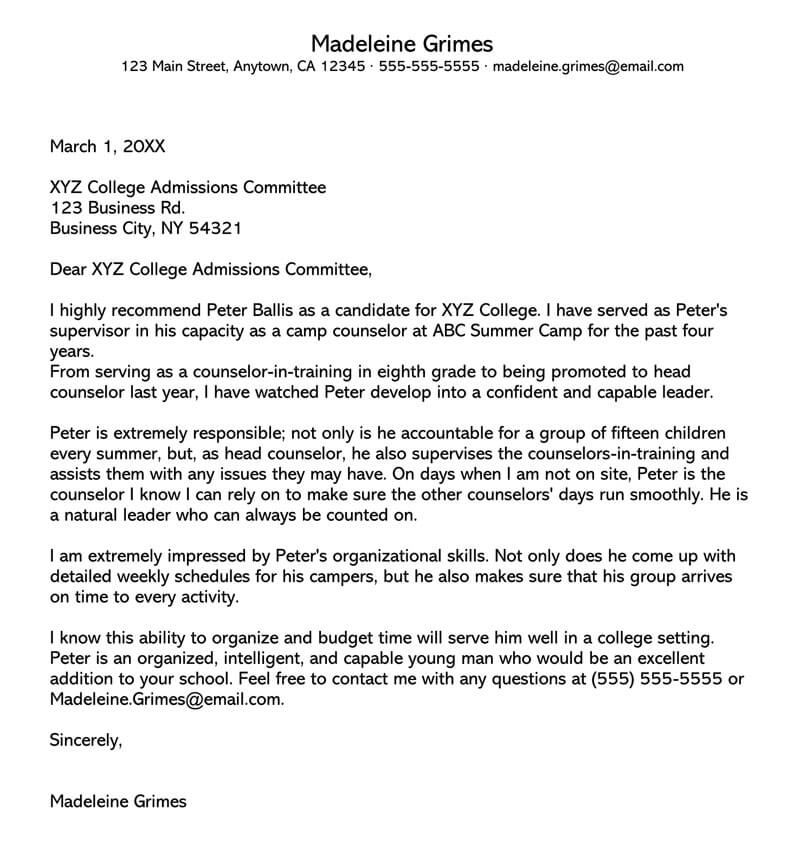
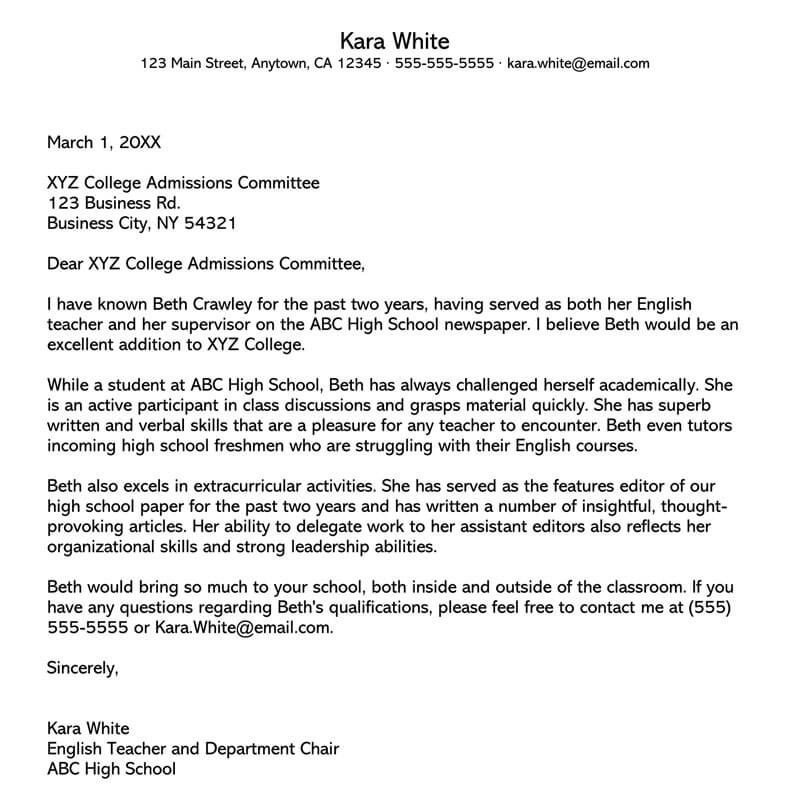
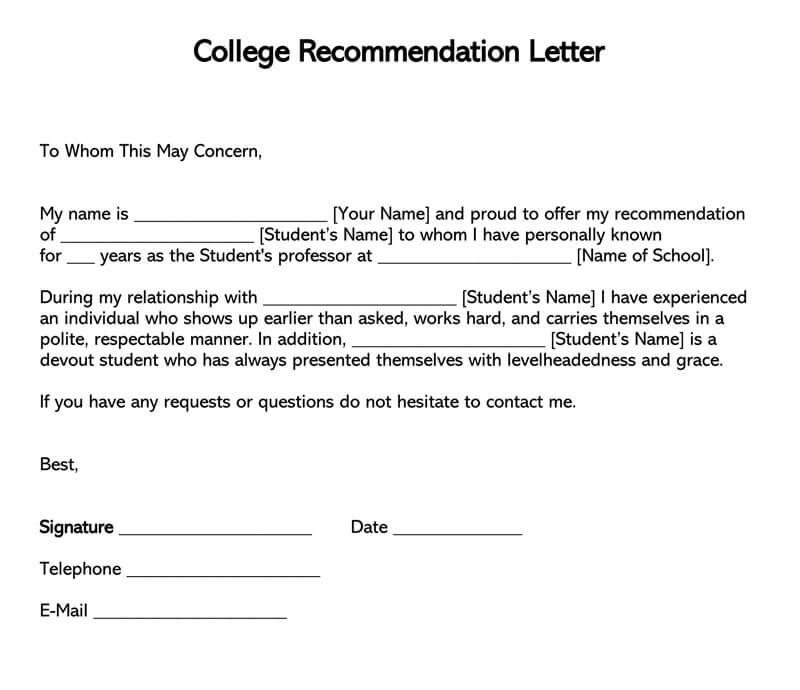
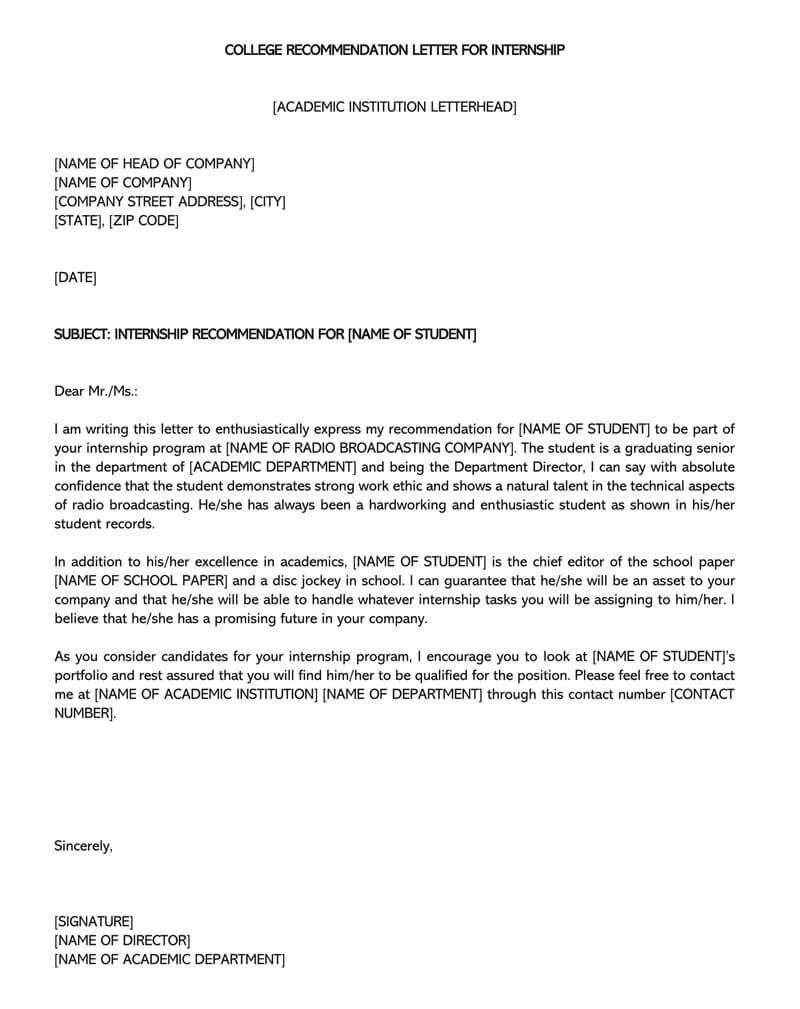
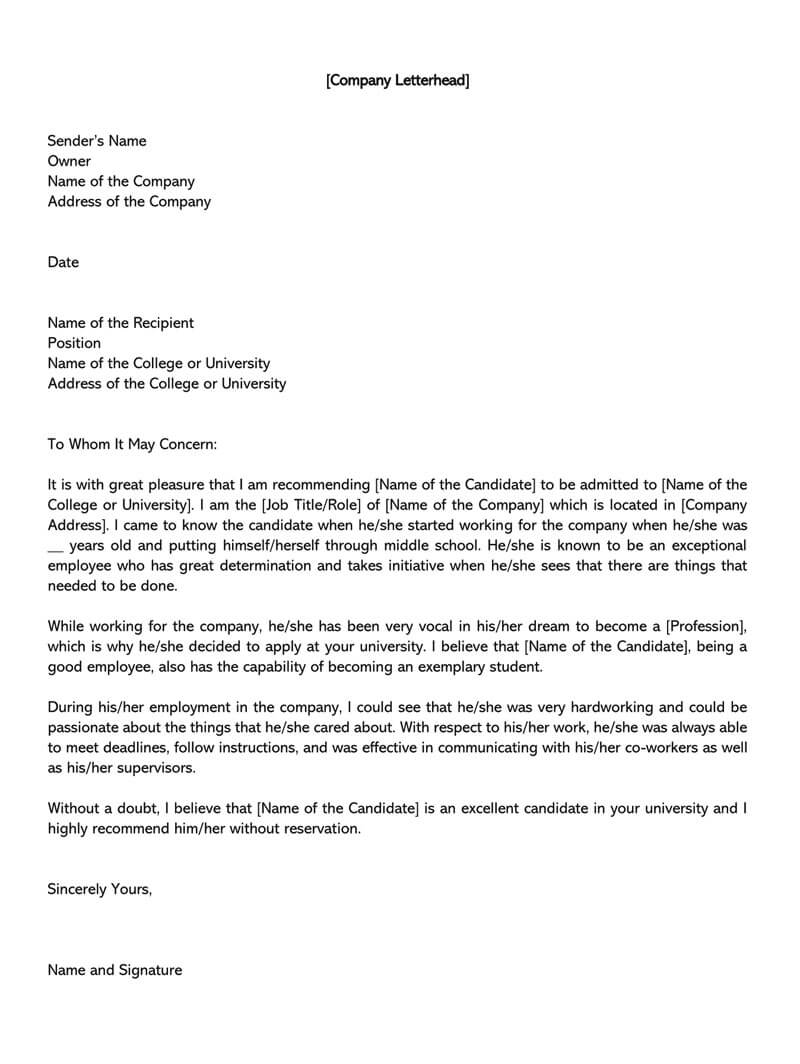
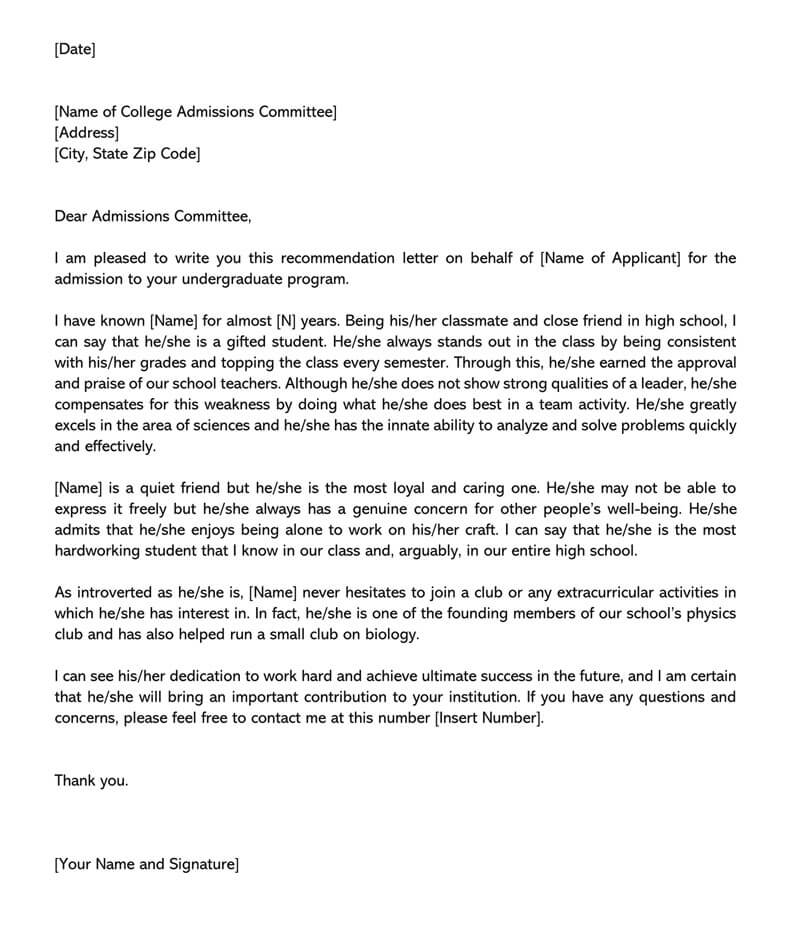
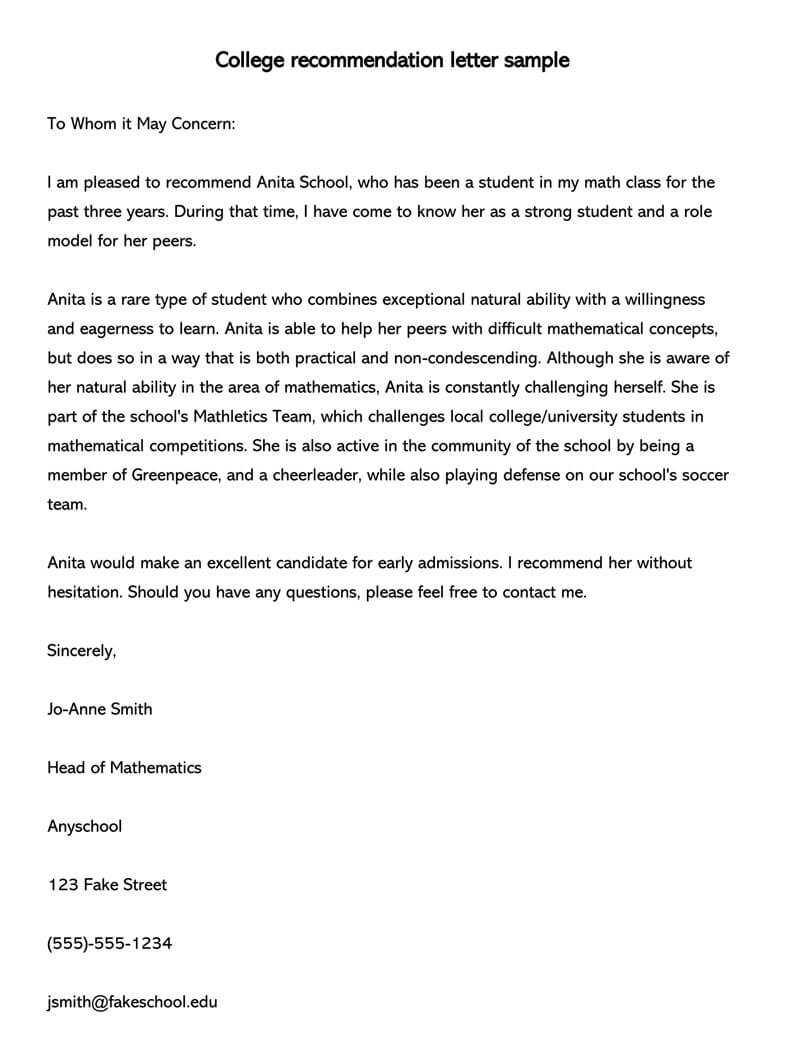
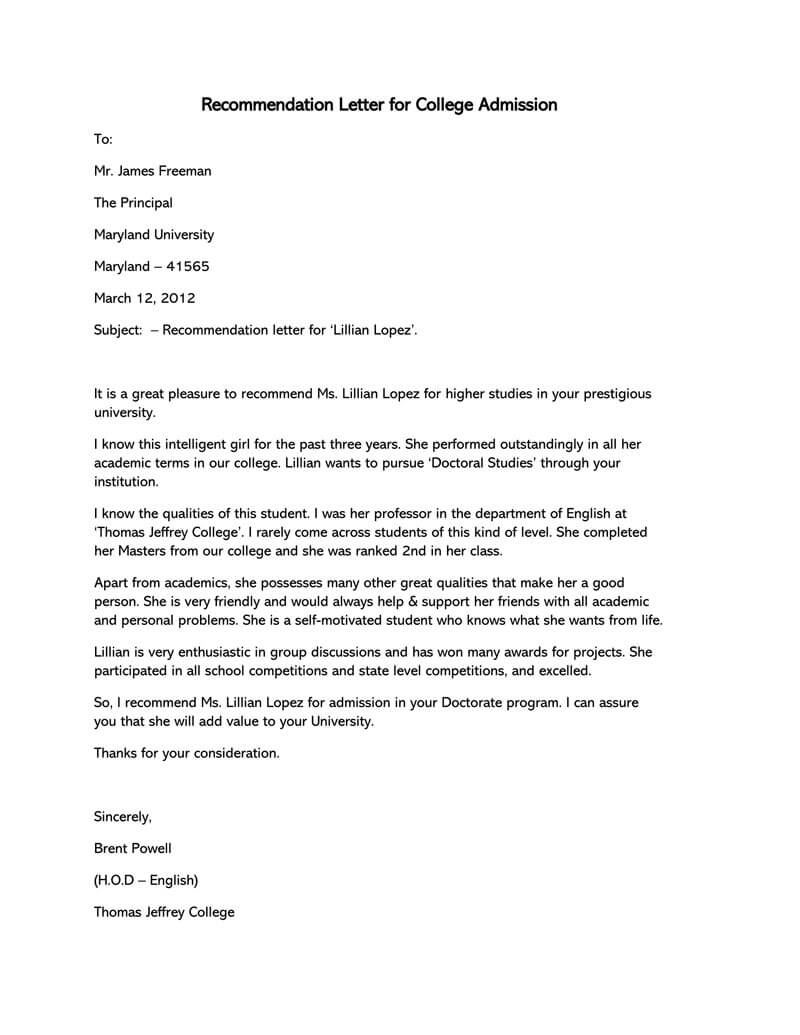
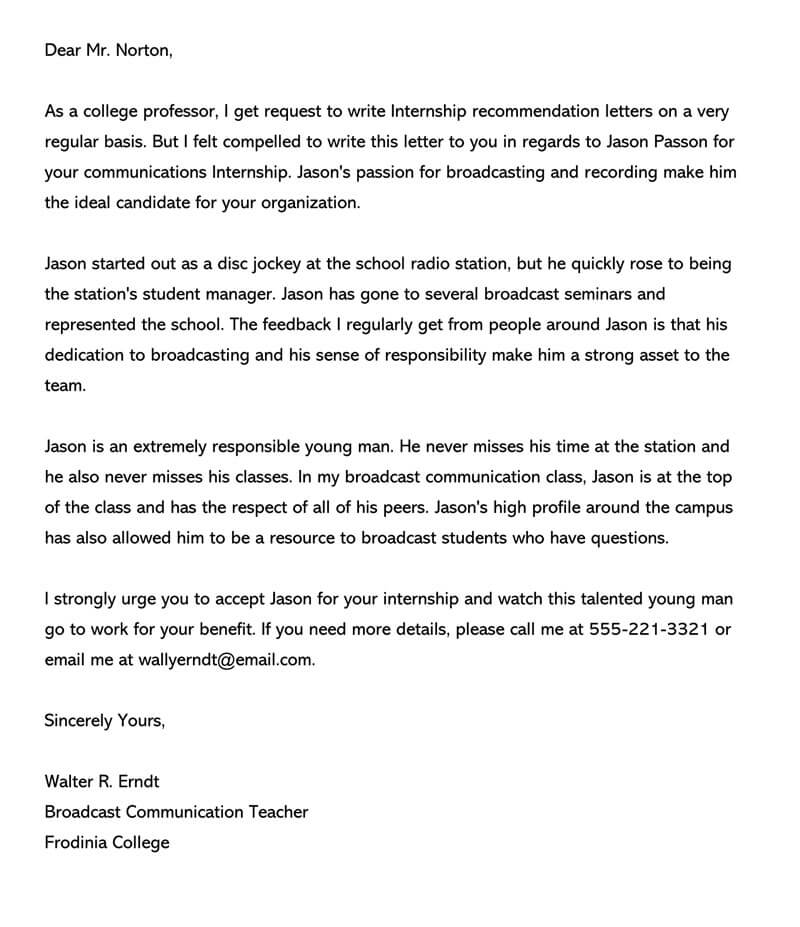
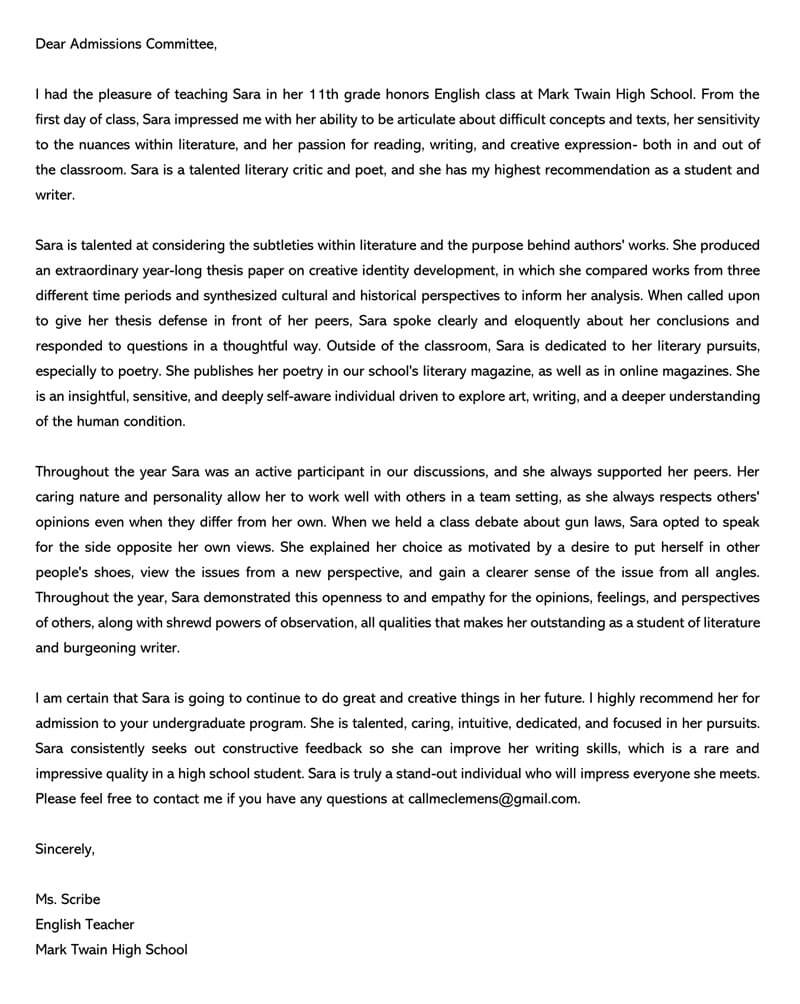
What is a College Recommendation Letter?
A college recommendation letter is quite simply a letter that colleges require for students before making an admission decision. Some colleges have pre-set forms (like college admission forms) that they ask to be filled out, and others want a professionally formatted recommendation letter. These letters are pivotal in making a decision for admission. They speak to the achievements of an applicant and help the college determine the character of the applicant. These letters are especially important if the student is trying to get into a specific program. For instance, if a student is trying to get into a highly competitive nursing program, these letters can make all the difference when it comes to a school making an admissions decision.
Whom Should I Ask to Write This?
As a student, it can be confusing to figure out who you should be asking to write you a letter. The person you ask to write your letter is important and colleges do look at this when they go over your letters. As a rule of thumb, the following people are good to ask for recommendations:
Teachers: A teacher is great to ask to write you a recommendation, especially a teacher with whom you have a good relationship. For instance, if you have had the same English teacher for the past three years, it might be a good idea to ask them for a letter. They will have experience with your character and a good idea of your academic abilities.
Coaches/Extracurricular Advisors: These people see you outside of the normal classroom setting and can speak to different skills. For instance, a coach can speak to your ability to work as part of a team. An extracurricular advisor may be able to speak to your artistic ability, your organizational skills, or how good you are with money because you served as the treasurer. Getting this unique opinion and insight can be valuable to colleges that are looking for students with these attributes.
Employers: If you have a job throughout high school, it can be important to gain a recommendation letter from them. They can speak to your customer service abilities and your emotional control with difficult customers, which can be something that can benefit you if you are trying to get into a program such as business or nursing. It also offers opportunities for you to gain employment on campus.
Colleges generally look for letters of recommendation from these sources because it speaks to skills they look for in their prospective students.
What Should be Included in a Recommendation Letter?
College admissions committees look for certain things when they are going through student recommendation letters.
Focus on school or program: Writing your letter aimed at the school or program shows the school that you are serious about the student you are writing for. If you make sure that the letter is tailored to the school, rather than using generalizations and writing “to whom it may concern,” the school will notice if you reference things specific to their program.
Get information from the student: Ask the student for a copy of their resume, their grades, and have them truly sell to you why they should get this letter. Students should all but write the letter for you with the information they are providing you. It is important to get this information before you start.
Include specific examples: Make sure that anything that you are writing in the letter has specific examples to support it. These anecdotal examples will be beneficial to the decision of the committee.
Mention how you know the student and who you are: Let the committee know how you know the student. This allows the committee to make a determination on how trustworthy your recommendation is. Also, make sure to mention your qualifications. The letter is as much about selling your qualifications as it is about selling your students.
How to Format this Letter?
When you are formatting a recommendation letter, you have certain things that you need to include. This should be formatted in the standard, professional format.
Your return addresses
Make sure to start the letter with your return address. This lets the college admissions board know how to get in touch with you.
The Date
Include in the letter either the date you are writing it or the date that you are sending it. Make sure this date is before the deadline for the letter to be recieved.
The Address of the College
If you have the contact details of the college, or if you are given the information of a specific person at the college, make sure that you include it here. If the student doesn’t provide this information, you can easily get it from the college’s website.
Addressing the Letter
Locate a contact person for the admissions committee to address the letter to. At the very least, address the letter to “ABC College Admissions Committee”. Skip “To Whom It May Concern” unless you have no other choice. It starts your letter more strongly.
Introduction
Start your letter with a small introduction of yourself and how you know the student. It is also best to include how long you have known them. This shouldn’t be more than two to three sentences.
Go Over The Student’s Accomplishments
Take the next paragraph to explain the student’s accomplishments, both academic and otherwise. You can split this between two paragraphs, as long as you don’t make it too long. Ideally, this should only be three to five sentences.
Conclusion
The conclusion should nicely package your letter. Tell the committee why this student would thrive there. Make sure that you share your contact information again at the end of this paragraph.
Closing and Signature
“Sincerely” works perfectly well for a closing in these letters. Make sure that you actually sign the letter, if it is to be printed. Even if it is not, digitally signing it makes it look more professional.
Last-minute Tips
If you’re ready to write, let’s go over some last-minute tips:
Avoid using clichés in your writing: If you use too many clichés in your writing, your professional tone becomes more friendly and playful. This is not what the committee is looking for in their letters.
Make sure your contact information is correct: When including your contact information, you need to make sure that it is up to date. If the admissions committee has any further questions about that applicant, they need a way to contact you.
Follow the submission guidelines: Some schools have specific guidelines that you need to follow when submitting a recommendation letter. They are asking for specific questions to be answered. Make sure that you are familiar with the guidelines and ask the student for a copy of the guidelines before saying “yes”.
Send your letter on letterhead: When you are writing a recommendation letter, make sure that you print it on professional letterhead, or, if you have the option, digital letterhead. Most high schools can provide you with a copy of their letterhead if you don’t know how to gain a copy on your computer. If you work for a company, you can utilize the letterhead for that company. Keep it short: Keep your letter short and sweet. The admission’s board goes through hundreds, if not thousands of these. The longer they are, the less likely it is for the committee to read through the entire letter.
Example Letter 1 (From a Teacher):
Karen Jones
1234 Park St
Anytown, Pennsylvania 12345
April 14, 2019
ABC College Admission’s Board
1234 Butler Ave
Everywhere, CA 12345
Dear ABC College Admission’s Board:
My name is Karen Jones. I have served as a science teacher at Parktown High School for the past fifteen years and have had the privilege to serve as Ryan Thomas’s teacher for the past three. I have also been Ryan’s advisor on the science academic team here at school. Due to his qualifications, I feel that Ryan would be an excellent addition to your school.
While he has been a student here, Ryan has always challenged himself academically, taking all of the AP courses that our school has to offer. He has been captain of the academic team for the past two years, showing strong leadership qualities and organizational skills. His superior written and verbal skills have far surpassed any student of his age.
Ryan would bring much to your school, both in and out of the classroom. If you have any questions regarding Ryan’s qualifications, please contact me at (123) 555-5555 or at Karen.Jones@email.com.
Sincerely,
Karen Jones
Science Department Head
Park Town High School
Example 2 (From an Employer):
Courtney Calise
123 AnyRoad Dr
Anytown, NY 12345
January 16, 2018
Ashley Allison
1234 Butler Ave
Everywhere, CA 12345
Dear Ms. Allison:
I would like to express my sincerest recommendation for Tony Oliver’s admission into your school. I have served as Mr. Oliver’s boss for the past four years at LMN Summer Camp.
The tenacity which Mr. Oliver has will never cease to amaze me. He was promoted to head counselor after just his first year with us and has proven a capable leader ever since. Watching his confidence grow has inspired, not only myself, my the entire staff here.
Tony is extremely responsible. He is currently in charge of overseeing fifteen of our young campers as well as supervising all staff training for our counselors. When I am not on site, I know that Mr. Oliver will help the organization to run smoothly and assist all of our campers with any problems they may have. He is a wonderful asset to our team here.
Mr. Oliver’s organizational skills and time management skills have also continued to impress me during his time with us. He organizes all group activities for our campers and comes up with daily schedules for our staff and his group of campers.
I know that all of the abilities that Tony has demonstrated here will make him a benefit to the college setting. If you have any questions, please feel free to contact me at (555) 555-5555 or at CCalise@email.com.
Sincerely,
Courtney Calise
How to Say No When You Aren’t Comfortable Writing for a Student?
If you aren’t comfortable writing a letter, it is acceptable to say “no”. There are a few ways to avoid causing offense to your student.
Professionally decline: Tell the student that, while you are honored, you have reservations about writing the letter. You do not have to share your reservations, but it can be helpful to let the student know where they can improve for other prospective teachers.
Tell the student the reason: If you don’t have time because you have already agreed to write five other recommendations, tell the student simply. Offer them another teacher they can ask for a letter that might be able to facilitate. If you feel you and the student don’t have enough experience together to write the letter, tell them that and help them come up with someone who is better suited. Students can be fairly understanding when they know the reason.
Remain positive: Don’t share negatives with the student if you have to decline. If you’re declining because they show little work ethic in your class, frame it in a positive light. Always offer them a positive that you have noticed before you point out your reservations if you choose to do so.












